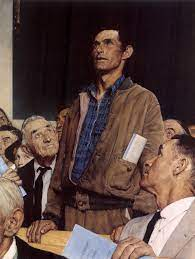From Inside Higher Ed:
Law schools may soon be required to adopt written free speech policies under a proposal being considered by the American Bar Association. The potential changes come after, but are not a direct consequence of, multiple high-profile incidents of student disruptions of speakers at law schools prompted widespread debates about free speech, academic freedom and students’ right to protest.
The decision to review freedom of expression policies for law schools dates back to 2021. The association’s Council of the Section of Legal Education and Admissions to the Bar, which the U.S. Department of Education recognizes as the sole and independent accreditor of law schools, voted Friday to accept the proposal, produced by its Strategic Review Committee, or SRC, and put it out for public notice and comment...
Full article at https://www.insidehighered.com/news/governance/accreditation/2023/08/24/law-school-accreditor-weighs-free-speech-requirements.
Below is the specific policy proposal:
Standard 208. ACADEMIC FREEDOM AND FREEDOM OF EXPRESSION
(a) A law school shall adopt, publish, and adhere to written policies that protect academic freedom. A law school’s academic freedom policies shall:
(1) Apply to all full and part-time faculty, as well as to all others teaching law school courses;
(2) Apply to conducting research, publishing scholarship, engaging in law school governance, participating in law related public service activities, and exercising teaching responsibilities, including those related to client representation in clinical programs; and
(3) Afford due process, such as notice, hearing, and appeal rights, to assess any claim of a violation of the academic freedom policies.
(b) A law school shall adopt, publish, and adhere to written policies that encourage and support the free expression of ideas. A law school’s free expression policies must:
(1) Protect the rights of faculty, students, and staff to communicate ideas that may be controversial or unpopular, including through robust debate, demonstrations, or protests;
and
(2) Proscribe disruptive conduct that hinders free expression by preventing or substantially interfering with the carrying out of law school functions or approved activities, such as classes, meetings, interviews, ceremonies, and public events;
(c) Consistent with this Standard, a law school may:
(1) Restrict expression that violates the law, that falsely defames a specific individual, that constitutes a genuine threat or harassment, or that unjustifiably invades substantial privacy or confidentiality interests.
(2) Reasonably regulate the time, place, and manner of expression.
(3) Adopt policies on academic freedom and freedom of expression that reflect the law school’s mission, including a religious mission, so long as such policies are not in violation of the law and are clearly disclosed in writing to all faculty, students, and staff prior to their affiliation with the law school.
Interpretation 208-1
Standard 208 applies to both public and private law schools.
Interpretation 208-2
A law school may, when appropriate, differentiate among students, faculty, and staff in its policies on freedom of expression.
Interpretation 208-3
Standard 208(a) does not preclude a law school from identifying the courses that will be taught, requiring courses to cover particular content, or requiring faculty, students, or staff to clarify in appropriate circumstances that their views are not statements by or on behalf of the law school.
Interpretation 208-4
This Standard does not prevent a law school from applying disciplinary action for conduct identified in Standard 208(b)(2).
Interpretation 208-5
Subsection (c) recognizes that law schools may restrict speech consistent with the First Amendment of the United States Constitution.
Interpretation 208-6
Effective legal education and the development of the law require the free, robust, and uninhibited sharing of ideas reflecting a wide range of viewpoints. Becoming an effective advocate or counselor requires learning how to conduct candid and civil discourse in respectful disagreement with others while advancing reasoned and evidence-based arguments. Concerns about civility and mutual respect, however, do not justify barring discussion of ideas because they are controversial or even offensive or disagreeable to some.

No comments:
Post a Comment